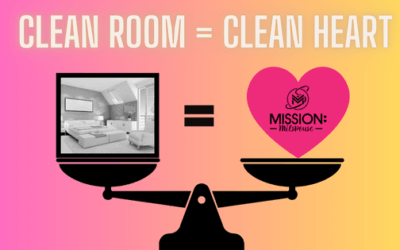Going back to school is very exciting, but it is also a huge investment of time, effort, and money, so you have to make sure you choose wisely. But all that pressure can be a bit overwhelming, perhaps even a little paralyzing. To help you get started, we’ve put together our Choosy Student’s 10-Point Checklist.
Each point on the checklist should help you identify what matters to you and what you’re really looking for in a school.
1. Education Level
First, what type of education are you looking for? Do you want to earn a degree? If so, are you looking for an associate, bachelor, or graduate-level program? Depending on your career goals, you may not even need a degree. Career-training programs, certificate programs, and non-degree programs can be excellent preparation for careers like medical coding or pharmacy technician. Clearly define your career goals, and make sure you know exactly what level of education you’ll need.
2. Learning Environment
Do you want to attend classes in a traditional on-campus setting, or are you interested in the flexibility of online training? Online training is becoming increasingly popular because the freedom and flexibility it offers makes it possible for busy adults to return to school. Online is a particularly great option for military spouses because you don’t have to worry about transferring if you have to PCS.
3. Quality Training (For Your Program Specifically)
Everyone has different talents, and schools are no different. Make sure the schools you consider have quality training for the program you’re interested in. For example, I attended a private university, and while the program I was in was one of the top in the nation, their nursing program is considered inferior to the one at a nearby state school. If I had wanted to become a nurse, the other school may have been a better option. You want to make sure you’re getting the best training for your investment and situation.
4. Industry/Employer Recognition
Make sure you know how the industry you’re going into will look at that school’s name on your resume. Will your potential future employers recognize and respect the institutions you’re considering and the training you’ll receive? Make a few calls and see what they say. It also pays to see what type of employer connections your school has and how that will boost your networking abilities after graduation.
5. Tuition
Be a smart consumer and know what you’re signing up for. What does tuition cover, and will you have other fees? How will you pay for school? If you’re taking out loans, will your new career provide the income you need to pay them off? Are there other more affordable options out there? Does choosing a more expensive program provide a payoff that’s worth the higher cost? Even if you’re taking advantage of programs like MyCAA, Post-9/11 GI Bill funding, Pell grants, or other financial aid, be aware of where and how you’ll be spending your money and make the most of your investment.
6. Certification/License Preparation
Does your career of choice require a certification or license? Will your program prepare you to earn that credential upon graduation, or will you need to do a significant amount of outside preparation? Programs that have you credential-ready upon graduation are typically the best investment, but be sure to ask the necessary questions.
7. Instructor Support
No matter how you’re going to school, where you’re going to school, or why you’re going to school, having instructors you can reach out to when you need help is the way to go. If you’re attending an on-campus program, will you have access to your instructors only during the class period or are there office hours where you can meet with them one-on-one? If you’re taking an online program, how can you get the help you’ll need? Are instructors available throughout the course and in convenient ways? Make sure you’ll have the support you need to make the most of your education.
8. Graduate Support
The goal of going back to school is often to improve your career prospects, and an education that doesn’t turn into a job falls short of the goal. Ensure your school of choice has resources to help you land that first position. Things to look for include resume help and review services, interview coaching, a directory of employers that hire the school’s graduates, and networking opportunities.
9. Study Tools and Textbooks
Are there any special study tools that you’ll have access to through your school? For example, does your school or program hold frequent instructor webinars or chats on special topics or featuring specific employers? Will you have access to any subscription-only reference materials during your time as a student? Also, be sure to ask whether textbooks are included, and if they are available in print or as ebooks.
10. Classmate Interaction
This could be a positive or a negative depending on your viewpoint and personality, but it’s a good idea to know what classmate interaction you’ll have. If you’re attending an on-campus program, this could be fairly obvious, but try to get an idea of whether you’ll be working on a lot of group projects or working primarily on your own so you know what to expect. If you’re taking an online program, be sure to ask if there are opportunities to connect and network with other students.
And there we have it. Hopefully our checklist has given you some insight into what you’re really looking for in a school as well as a tool you can use in choosing the program that’s right for you.







0 Comments